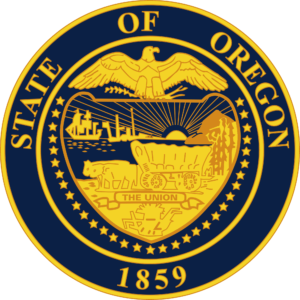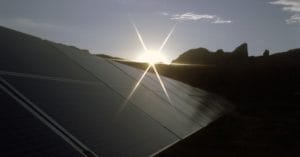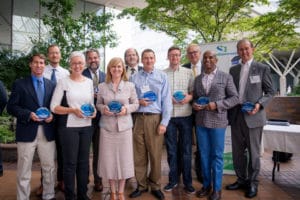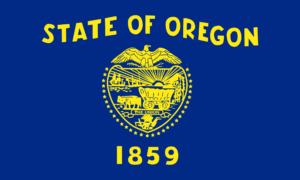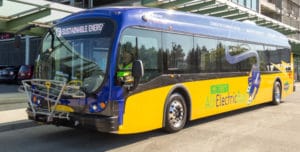Posts by Alicia Healey
Oregon: Clean electricity and coal transition bill advances to Senate floor
House Bill 4036, Oregon’s clean electricity and coal transition plan, is headed for a Senate floor vote after being passed out of committee on Monday. The bill is the product of an historic collaboration between investor-owned utilities, clean energy/climate organizations and the state’s foremost consumer advocacy group. HB 4036 cleared the House last week on a 39-20 bipartisan vote.
Read MoreClean electricity/coal transition plan passes Oregon House!
Oregon’s clean electricity and coal transition plan, House Bill 4036, passed its first big test on Monday, clearing the House floor on a 39-20 bipartisan vote.
The vote reflected both the historic collaboration of investor-owned utilities Portland General Electric and Pacific Power, clean energy/climate organizations and consumer advocates, and your efforts in contacting and educating House members on the importance of advancing the bill.
Read MoreRoger Hamilton OpEd: "Weaning state off coal is what Oregonians want"
Just over five years ago, Oregon regulators approved a proposal to shut down the state’s only coal-burning power plant. For more than three decades, the Boardman plant was a workhorse providing electricity to Oregon families and businesses. But in the end, with overwhelming public support, it became clear the benefits of closing the doors on Boardman, by far the state’s biggest air polluter, outweighed the costs.
Read More7th Northwest Power and Conservation Plan another stride toward clean energy future
In approving its seventh 20-year power plan on Wednesday, the Northwest Power and Conservation Council refilled the prescription to meet the region’s new electricity needs primarily with bill-shaving, emissions-avoiding, job-creating energy efficiency. The Council finds that acquiring 1,400 average megawatts of cost-effective energy efficiency in the plan’s five-year “action plan” period and 4,300 aMW by 2035 is the lowest cost and lowest risk strategy for meeting growth in electricity demand.
Read MoreBob Jenks OpEd in Statesman Journal: "Transition from coal is best for Oregon’s energy future"
As the executive director of the Citizens’ Utility Board of Oregon (CUB), Oregon’s utility ratepayer advocate for 30 years, I am pleased to have negotiated with a coalition of utilities and clean energy advocates to craft proposed House Bill 4036 or The Clean Energy and Transition from Coal Bill.
Read MoreMember spotlight: Drive Oregon
Drive Oregon, the NW Energy Coalition’s newest organizational member, is a non-profit trade association dedicated to supporting Oregon’s electric vehicle (EV) industry and strengthening the state’s EV market. The organization recently began looking at electric utilities’ role in growing the EV market and developing supporting policies in Oregon. When the group learned that the Coalition had expanded its focus on EV policy across the region, Drive Oregon pursued Coalition membership to boost those efforts and to engage with key stakeholders.
Read MoreSupport HB 4036, Oregon’s Clean Electricity Plan
The NW Energy Coalition and several of its members and allies have joined with Pacific Power and member utility Portland General Electric in designing legislation to stop Oregon energy consumers from paying for coal-fired power and to double the state’s 25% renewable portfolio standard for investor-owned utilities. This compromise represents a significant step forward for cleaner electric power and for carbon emissions reductions in Oregon.
Read MoreSpring 2016 Clean & Affordable Energy Conference
NW Energy Coalition issue paper weighs benefits and opportunities for vehicle electrification
Transportation is one of the most polluting, energy-inefficient sectors of our economy, and the Pacific Northwest is uniquely positioned to leverage its clean electricity resources to change that. State and local policy should foster a greater role for the region’s electric utilities in electrifying transportation, not only for passenger vehicles but also for buses, short-haul vans and trucks, and non-road industrial equipment such as forklifts and shore power.
Read MoreI-937 Fact Sheet, January 2016.
Washington voters passed Initiative 937 in 2006 to build on the state’s hydropower heritage and create a diverse clean energy economy.
Read More

